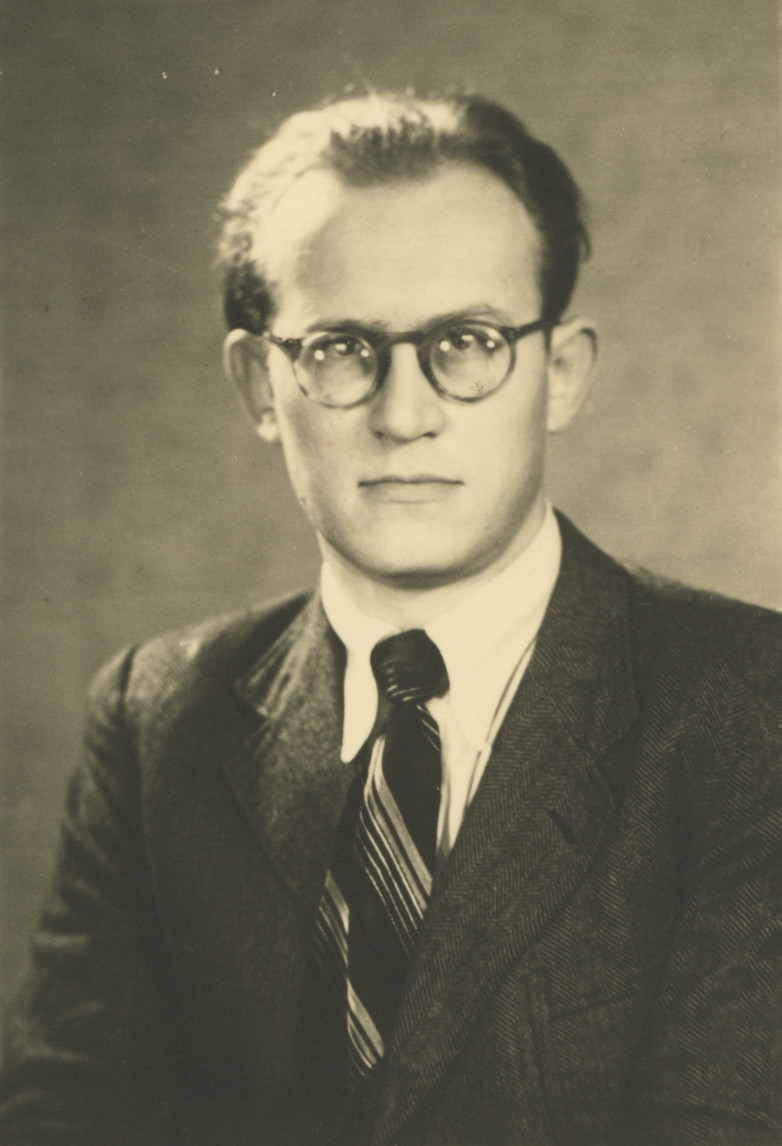
August Sang
August Sang (27. VII 1914 – 14. X 1969) left his mark on Estonian culture as a poet and one of the most masterful translators of poetry of all time. He was also a considerable literary critic.
Sang was born in Pärnu and graduated in 1932 from the Pärnu Boys’ Gymnasium. After performing his military service, Sang entered the faculty of philosophy at the University of Tartu in 1934, where he studied intermittently until 1942. August Sang was a member of the Estonian Writers’ Union from 1945. Accused of decadence, he was expelled from it in 1950. His rights and membership were restored to him in 1955.
Sang was more consistently involved with poetry ever since his final year in gymnasium. August Sang made his debut in 1934 in the journal Looming. His first collection, Üks noormees otsib õnne (‘One Young Man Seeks Happiness’) appeared in 1936. At the same time August Sang started writing literary criticism: he produced numerous reviews and surveys. Sang’s poetry is simple and direct; it always has a clear message which is concealed in a pure form. Because of the strong influence of Heinrich Heine’s lyrics, Sang may be regarded as a classical heir to the older Estonian poetic tradition. In the late thirties he contributed to the epoch-making Arbujad anthology.
Compared with the creative work of his youth before the war, in which despite his precocity one can discern hesitation, Sang’s mature poetry is characterized by resigned humanism. After the arduous years of war and repression the poet emphasizes the need to preserve humanity despite everything, and to believe in a better future.
The unfavourable times for his own creative work made Sang a productive translator. He translated poetry from German, Russian, Czech and other languages as well as prose and drama from German and Russian. One of Sang’s greatest achievements was his translation of Goethe’s Faust.
L. P. (Translated by C. M.)
Books in Estonian
Poetry
Üks noormees otsib õnne: luuletusi. Tartu: Kuldvillak, 1936. 63 lk.
Müürid: luuletusi. Tartu: Eesti Kirjanikkude Liit, 1939. 63 lk.
Võileib suudlusega: luuletusi 1956–1962. Tallinn: Eesti Riiklik Kirjastus, 1963. 88 lk.
Sada laulu: valik luuletusi 1933–1963. Tallinn: Eesti Raamat, 1965. 223 lk.
August Sang. Tallinn: Eesti Raamat, 1971, 120 lk. [Sari ‘Väike luuleraamat’.]
Laulud. Koostanud Kersti Sang-Merilaas. Tallinn: Eesti Raamat, 1977, 373 lk.
Emajõe unisel veerel. Valinud Udo Uibo. Tallinn: Vagabund, 2003, 231 lk.
Non-fiction
Heinrich Heine: luuletaja ja võitleja. Tartu: Eesti Kirjanduse Selts, 1938. 159 lk.



